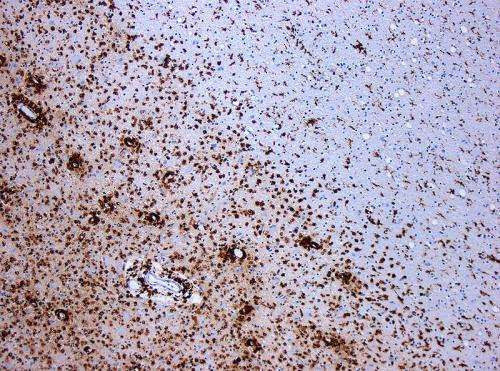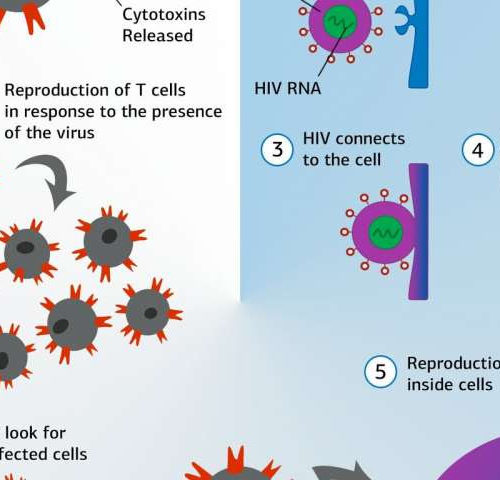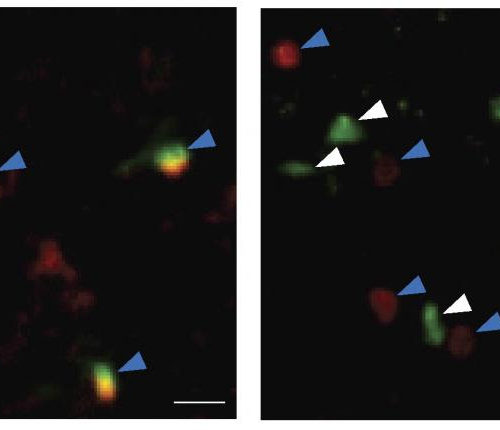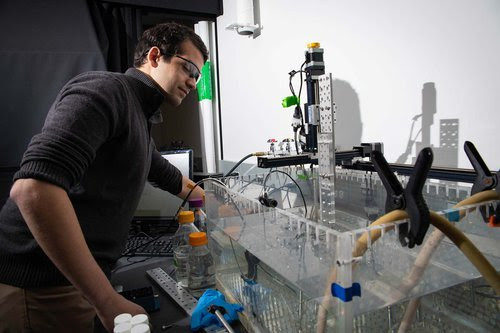by Trinity College Dublin Scientists from Trinity College Dublin have made an important discovery that could lead to more effective treatments for people living with multiple sclerosis (MS) and other autoimmune diseases such as psoriasis and rheumatoid arthritis. Their work highlights the significant potential of drugs targeting a specific immune molecule (IL-17) implicated in MS. Demyelination...
New substance prevents vascular calcification
by ETH Zurich Researchers at ETH Zurich and ETH spin-off Inositec have developed a new substance to prevent vascular calcification, which affects many patients suffering from chronic kidney disease. As their metabolism is impaired, calcium salts may deposit in soft tissues, such as blood vessels or even the heart valves, causing them to stiffen. This often...
Mathematicians develop a model of the movement of immune cells
by RUDN University Mathematicians from RUDN University have developed a computational model that allows predicting the mobility of T-lymphocytes, immune cells that recognize and destroy viruses. The model will help in the treatment of immune system disorders, including those that can lead to cancer, and in the development of HIV vaccines. The study was published...
Does abdominal fat affect the cognitive function of older adults with diabetes?
by Wiley Higher levels of abdominal fat were linked with reduced cognitive function in a Clinical Obesitystudy of older Asians with type 2 diabetes—even in individuals with normal weight. In the 677-participant study, higher abdominal fat—or visceral adiposity—was associated with lower scores related to memory and language. “Preserved cognitive functioning is important in the execution...
Activating immune cells could revitalize the aging brain, study suggests
ROCKEFELLER UNIVERSITY PRESS Researchers at Albany Medical College in New York have discovered that a specific type of immune cell accumulates in older brains, and that activating these cells improves the memory of aged mice. The study, which will be published February 5 in the Journal of Experimental Medicine (JEM), suggests that targeting these cells...
U of T researchers discover intricate process of DNA repair in genome stability
UNIVERSITY OF TORONTO An elaborate system of filaments, liquid droplet dynamics and protein connectors enables the repair of some damaged DNA in the nuclei of cells, researchers at the University of Toronto have found. The findings further challenge the belief that broken DNA floats aimlessly — and highlight the value of cross-disciplinary research in biology...
Flashing Light Into Eyes Lowers Buildup of Alzheimer’s Amyloid Plaques
FEBRUARY 4TH, 2020 MEDGADGET EDITORS MEDICINE, NEUROLOGY, NEUROSURGERY A few years ago scientists discovered that directing flashing light at 40 Hertz (cycles per second) into the eyes and noises into the ears of mice with Alzheimer’s disease led to a marked decline in amyloid plaques in their brains. The mechanism making this happen was pretty...
Ultrasound Can Selectively Kill Cancer Cells
A new technique could offer a targeted approach to fighting cancer: low-intensity pulses of ultrasound have been shown to selectively kill cancer cells while leaving normal cells unharmed. Ultrasound waves—sound waves with frequencies higher than humans can hear—have been used as a cancer treatment before, albeit in a broad-brush approach: high-intensity bursts of ultrasound can...
Chromatin organizes into 3D ‘forests’ in single cells
A single cell contains the genetic instructions for an entire organism. This genomic information is managed and processed by the complex machinery of chromatin — a mix of DNA and protein in chromosomes whose function and role in disease are of increasing interest to scientists and engineers. Using mathematical modeling and optical imaging, researchers funded...
Researchers design proteins that can be utilized to combat Alzheimer’s disease
by New York University A team of researchers, led by NYU Abu Dhabi Assistant Professor of Biology Mazin Magzoub, has developed small proteins called cell-penetrating peptides (CPPs) that prevent the aggregation of the amyloid-β (Aβ) protein associated with Alzheimer’s disease. There is a growing interest in the use of proteins to develop treatments because they...









